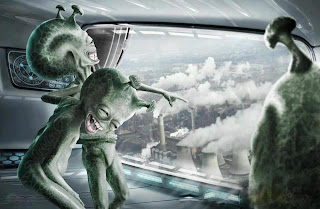Question: What is the difference between awareness and introspection? And who is aware in awareness?
Krishnamurti: Let us first examine what we mean by introspection. We mean by introspection looking within oneself, examining oneself. Why does one examine oneself? In order to improve, in order to change, in order to modify. You introspect in order to become something, otherwise you would not indulge in introspection. You would not examine yourself if there were not the desire to modify, change, to become something other than what you are. That is the obvious reason for introspection. I am angry and I introspect, examine myself, in order to get rid of anger or to modify or change anger. Where there is introspection, which is the desire to modify or change the responses, the reactions of the self, there is always an end in view; when that end is not achieved, there is moodiness, depression. Therefore introspection invariably goes with depression. I don't know if you have noticed that when you introspect, when you look into yourself in order to change yourself, there is always a wave of depression. There is always a moody wave which you have to battle against; you have to examine yourself again in order to overcome that mood and so on. Introspection is a process in which there is no release because it is a process of transforming what is into something which it is not. Obviously that is exactly what is taking place when we introspect, when we indulge in that peculiar action. In that action, there is always an accumulative process, the `I' examining something in order to change it, so there is always a dualistic conflict and therefore a process of frustration. There is never a release; and, realizing that frustration, there is depression.
Awareness is entirely different. Awareness is observation without condemnation. Awareness brings understanding, because there is no condemnation or identification but silent observation. If I want to understand something, I must observe, I must not criticize, I must not condemn, I must not pursue it as pleasure or avoid it as non-pleasure. There must merely be the silent observation of a fact. There is no end in view but awareness of everything as it arises. That observation and the understanding of that observation cease when there is condemnation, identification, or justification. Introspection is self-improvement and therefore introspection is self-centredness. Awareness is not self-improvement. On the contrary, it is the ending of the self, of the 'I', with all its peculiar idiosyncrasies, memories, demands and pursuits. In introspection there is identification and condemnation. In awareness there is no condemnation or identification; therefore there is no self-improvement. There is a vast difference between the two.
The man who wants to improve himself can never be aware, because improvement implies condemnation and the achievement of a result. Whereas in awareness there is observation without condemnation, without denial or acceptance. That awareness begins with outward things, being aware, being in contact with objects, with nature. First, there is awareness of things about one, being sensitive to objects, to nature, then to people, which means relationship; then there is awareness of ideas. This awareness, being sensitive to things, to nature, to people, to ideas, is not made up of separate processes, but is one unitary process. It is a constant observation of everything, of every thought and feeling and action as they arise within oneself. As awareness is not condemnatory, there is no accumulation. You condemn only when you have a standard, which means there is accumulation and therefore improvement of the self. Awareness is to understand the activities of the self, the `I', in its relationship with people, with ideas and with things. That awareness is from moment to moment and therefore it cannot be practised. When you practise a thing, it becomes a habit and awareness is not habit. A mind that is habitual is insensitive, a mind that is functioning within the groove of a particular action is dull, unpliable, whereas awareness demands constant pliability, alertness. This is not difficult. It is what you actually do when you are interested in something, when you are interested in watching your child, your wife, your plants, the trees, the birds. You observe without condemnation, without identification; therefore in that observation there is complete communion; the observer and the observed are completely in communion. This actually takes place when you are deeply, profoundly interested in something.
Thus there is a vast difference between awareness and the self-expansive improvement of introspection. Introspection leads to frustration, to further and greater conflict; whereas awareness is a process of release from the action of the self; it is to be aware of your daily movements, of your thoughts, of your actions and to be aware of another, to observe him. You can do that only when you love somebody, when you are deeply interested in something; when I want to know myself, my whole being, the whole content of myself and not just one or two layers, then there obviously must be no condemnation. Then I must be open to every thought, to every feeling, to all the moods, to all the suppressions; and as there is more and more expansive awareness, there is greater and greater freedom from all the hidden movement of thoughts, motives and pursuits. Awareness is freedom, it brings freedom, it yields freedom, whereas introspection cultivates conflict, the process of self-enclosure; therefore there is always frustration and fear in it.
The questioner also wants to know who is aware. When you have a profound experience of any kind, what is taking place? When there is such an experience, are you aware that you are experiencing? When you are angry, at the split second of anger or of jealousy or of joy, are you aware that you are joyous or that you are angry? It is only when the experience is over that there is the experiencer and the experienced. Then the experiencer observes the experienced, the object of experience. At the moment of experience, there is neither the observer nor the observed: there is only the experiencing. Most of us are not experiencing. We are always outside the state of experiencing and therefore we ask this question as to who is the observer, who is it that is aware? Surely such a question is a wrong question, is it not? The moment there is experiencing, there is neither the person who is aware nor the object of which he is aware. There is neither the observer nor the observed but only a state of experiencing. Most of us find it is extremely difficult to live in a state of experiencing, because that demands an extraordinary pliability, a quickness, a high degree of sensitivity; and that is denied when we are pursuing a result, when we want to succeed, when we have an end in view, when we are calculating - all of which brings frustration. A man who does not demand anything, who is not seeking an end, who is not searching out a result with all its implications, such a man is in a state of constant experiencing. Everything then has a movement, a meaning; nothing is old, nothing is charred, nothing is repetitive, because what is is never old, The challenge is always new. It is only the response to the challenge that is old; the old creates further residue, which is memory, the observer, who separates himself from the observed, from the challenge, from the experience.
You can experiment with this for yourself very simply and very easily. Next time you are angry or jealous or greedy or violent or whatever it may be, watch yourself. In that state, `you' are not. There is only that state of being. The moment, the second afterwards, you term it, you name it, you call it jealousy, anger, greed; so you have created immediately the observer and the observed, the experiencer and the experienced. When there is the experiencer and the experienced, then the experiencer tries to modify the experience, change it, remember things about it and so on, and therefore maintains the division between himself and the experienced. If you don't name that feeling - which means you are not seeking a result, you are not condemning, you are merely silently aware of the feeling - then you will see that in that state of feeling, of experiencing, there is no observer and no observed, because the observer and the observed are a joint phenomenon and so there is only experiencing.
Therefore introspection and awareness are entirely different. Introspection leads to frustration, to further conflict, for in it is implied the desire for change and change is merely a modified continuity. Awareness is a state in which there is no condemnation, no justification or identification, and therefore there is understanding; in that state of passive, alert awareness there is neither the experiencer nor the experienced.
Introspection, which is a form of self-improvement, of self-expansion, can never lead to truth, because it is always a process of self-enclosure; whereas awareness is a state in which truth can come into being, the truth of what is, the simple truth of daily existence. It is only when we understand the truth of daily existence that we can go far. You must begin near to go far but most of us want to jump, to begin far without understanding what is close. As we understand the near, we shall find the distance between the near and the far is not. There is no distance - the beginning and the end are one.
.

















































